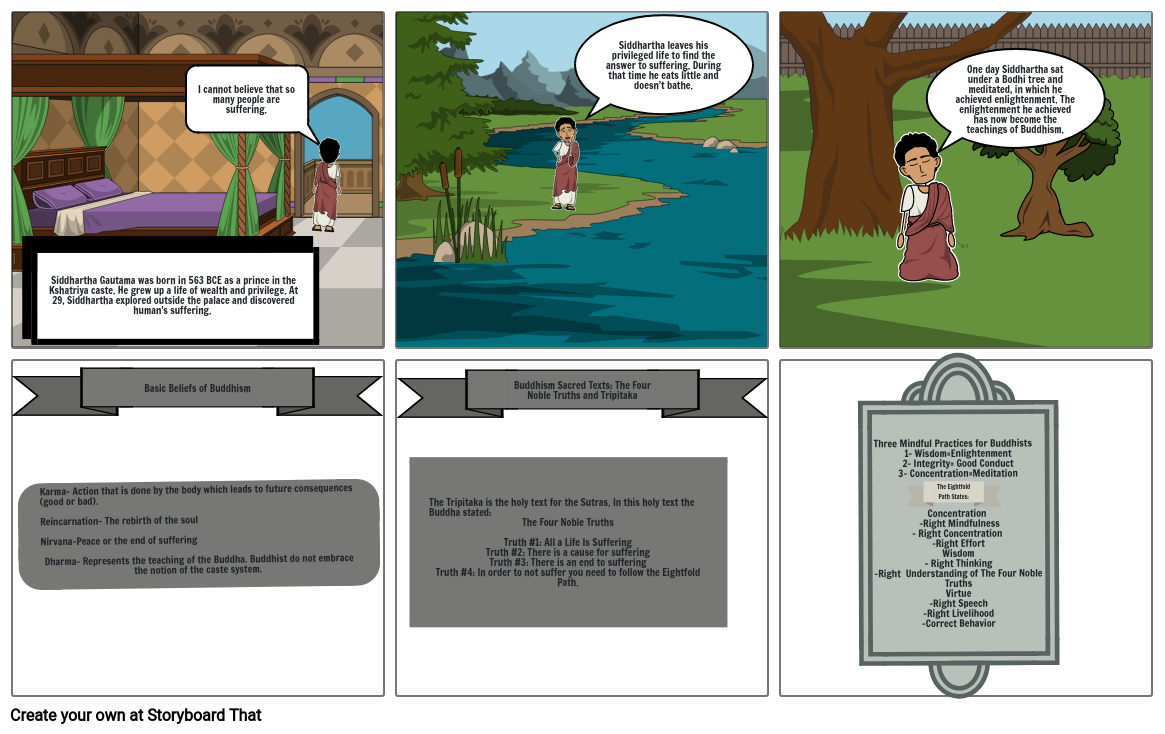Buddha

Storyboard Text
- Siddhartha Gautama was born in 563 BCE as a prince in the Kshatriya caste. He grew up a life of wealth and privilege. At 29, Siddhartha explored outside the palace and discovered human’s suffering.
- I cannot believe that so many people are suffering.
- Siddhartha leaves his privileged life to find the answer to suffering. During that time he eats little and doesn’t bathe.
- One day Siddhartha sat under a Bodhi tree and meditated, in which he achieved enlightenment. The enlightenment he achieved has now become the teachings of Buddhism.
- Basic Beliefs of Buddhism
- Karma- Action that is done by the body which leads to future consequences (good or bad).Reincarnation- The rebirth of the soul Nirvana-Peace or the end of sufferingDharma- Represents the teaching of the Buddha. Buddhist do not embrace the notion of the caste system.
- Buddhism Sacred Texts: The Four Noble Truths and Tripitaka
- The Tripitaka is the holy text for the Sutras. In this holy text the Buddha stated: The Four Noble TruthsTruth #1: All a Life Is SufferingTruth #2: There is a cause for sufferingTruth #3: There is an end to sufferingTruth #4: In order to not suffer you need to follow the Eightfold Path.
- Three Mindful Practices for Buddhists1- Wisdom=Enlightenment 2- Integrity= Good Conduct3- Concentration=MeditationConcentration -Right Mindfulness- Right Concentration -Right EffortWisdom- Right Thinking-Right Understanding of The Four Noble TruthsVirtue-Right Speech-Right Livelihood-Correct Behavior
- The Eightfold Path States:
- Siddhartha leaves his privileged life in the palace to find the answer to suffering. Hee eatsvery little and doesn’t bathe during this time.
Over 30 Million Storyboards Created
No Downloads, No Credit Card, and No Login Needed to Try!


